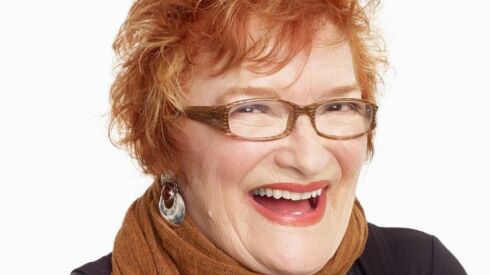As I drove into Chicago and saw its glimmering skyline, I wanted to throw up.
The navigation on my phone wasn’t making it any easier:
“Five minutes until your destination.”
“Three minutes until your destination.”
The directions felt more like warnings. The closer I got, the more my stomach was in knots.
“Turn left.”
“Arrived.”
I wasn’t experiencing first-time nerves. This was actually my second time moving to Chicago.
The first time, I came alone by plane, with $180. I settled into a small room in Chicago’s Ukrainian Village neighborhood and slept on a cot, but I was happy. I had made it to Chicago.
But I was barely getting to know faces and names at work when, after only five months, the pandemic sent me back to Texas.
On this second move to Chicago, I was more prepared and had a humble one-bedroom apartment waiting for me.
I drove to town this time from the Texas southern border with my big brother, whose family and my living room furniture were in his truck behind me. And that certain nasty insecure feeling — that sense of my stomach in knots — didn’t set in until we had arrived in Downstate Illinois and stopped at a Walmart.
My family went into the store while I stayed in my car.
A group of young men were hanging out in a rusty Chevy truck with the windows down, just to my left. They looked like bullies out of a Stephen King novel — think “It” or “Stand by Me.” They were whispering and giggling and looking at me.
My Mexican sixth sense told me to brace myself. I prepared for some kind of attack. And I began to relax again only when the truck began to back out of its parking spot.
But then, before speeding away, one of the men shouted: “ILLEGAL!”
It was expected. It really was. But it still felt like a gut punch. Everything I had accomplished in life had been emotionally stripped away with a single word.
I started to breathe heavily.
I thought to myself, “They didn’t even hear how good my English is.” As if that should matter.
I thought to myself, “What if they knew I have two college degrees?” As if that should matter.
I was a 29-year-old man with much to be proud of crying in his Mercedes-Benz.
My family would be coming back from the store. I had to calm down. I couldn’t tell them, “You’re about to drop me off a thousand miles from home, and I just experienced a classic episode of American racism.”
Maybe it helps to understand that I was born and raised in Laredo, Texas, a border town that is 95% Latino. A majority of my classmates were bilingual, and teachers had a hard time convincing us we were “minorities.” We were also well-versed in immigration law from family experience.
My parents never taught me how to react when confronted with casual racism because they didn’t have to. We lived in Laredo. We were safe.
I moved into my new apartment in Chicago’s Pilsen neighborhood at about 2 a.m. that night, the word “Illegal” still weighing heavily on me. Heavier than the bed and the couch.

Ismael Pérez with a Pride month concha from Panaderia Nuevo Leon.
Ismael Perez/Sun-Times
But my insecurities, as much as I missed Laredo, began to wash away over the next days and weeks as I explored and discovered my new neighborhood. One small and effortless hint after another told me Chicago was home.
I had tacos at Cantón Regio, where they were playing Selena’s “The Last Concert” (Live from the Astrodome) — a good sign I was in the presence of legitimate fans. My family had returned to Texas, but I still felt them with me when I heard every other person speak Spanish on the street.
Colorful murals, with their powerful messages of pro-immigration, and the Pride month conchas at Panaderia Nuevo Leon made me feel even more welcomed.
But it was a group of Latina women who really made me realize Pilsen was the right choice for me. After an outdoor Zumba class, they ran after me and told me in Spanish, “Hey, mister, please come back and join us tomorrow. We’d love to have you in our class.”
I was sweaty, wearing unflattering clothes and walking slowly because of cramps in my legs, but they wanted me. My emotional self wanted to throw up again. In a good way.
How could I contain all the unconditional love Pilsen has given me?
Ismael Pérez is a member of the Sun-Times Editorial Board.
Send letters to letters@suntimes.com.





